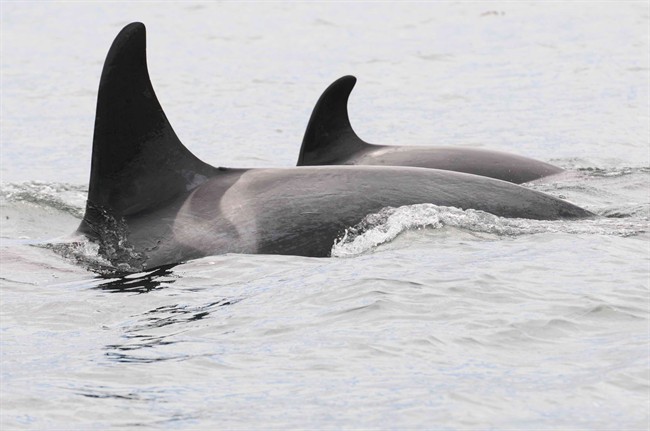It is official. The calf of the first ever killer whale to have been captured and successfully re-integrated into her pod now has a formal name.

The one-and-a-half year old calf was spotted with her mom, Springer, in June of last year.
The calf has survived its first year, considered to be the most challenging period in every whale’s life, and therefore needed a common name.
In July, the Vancouver Aquarium Marine Mammal Research Program asked the public to submit name suggestions.
The winning entry was — Spirit.
Northern Resident Killer Whale naming committee agreed that Spirit was the best name for the calf.
They say the name fits with the tradition of naming northern resident killer whales after coastal places.
Spirit was named after Spirit Island, near Bella Bella on the B.C. Central Coast, close to where the calf was first spotted.
Springer made headlines eleven years ago after she was captured and successfully reunited with her pod.
In 2002, one-year-old Springer was discovered alone and emaciated in Puget Sound near Seattle, Washington.
After losing her mother and pod, she was struggling to stay alive. Springer was judged to be in poor health and unlikely to survive alone.
- Joffre Lakes to close for 3 periods this year under agreement with First Nations
- ‘Why aren’t we doing more?’ White Rock on edge with killer on the loose
- B.C. carjacking victim says she doesn’t trust the ‘catch-and-release’ system
- Inquest into fatal Surrey hostage-taking recommends cameras for ERT teams
Springer became part of an unprecedented rescue effort – a coordination project between U.S. and Canadian researchers, including experts from the Vancouver Aquarium.
In June of 2002, after several months of monitoring her deteriorating condition, Springer was transported from Puget Sound and placed into a net pen at a research station, where she was rehabilitated.
When she was strong enough, Springer was brought back home into Canadian waters.
She was released when her pod made contact. Although not immediately, Springer was eventually re-adopted by her family.
Boaters are asked to keep an eye out for Springer and Spirit travelling with the rest of the A24 matriline.
To report a sighting of a whale, dolphin, or porpoise, contact Vancouver Aquarium’s B.C. Cetacean Sightings Network by calling 1.866.I.SAW.ONE, emailing sightings@vanaqua.org, or online at www.wildwhales.org.




Comments